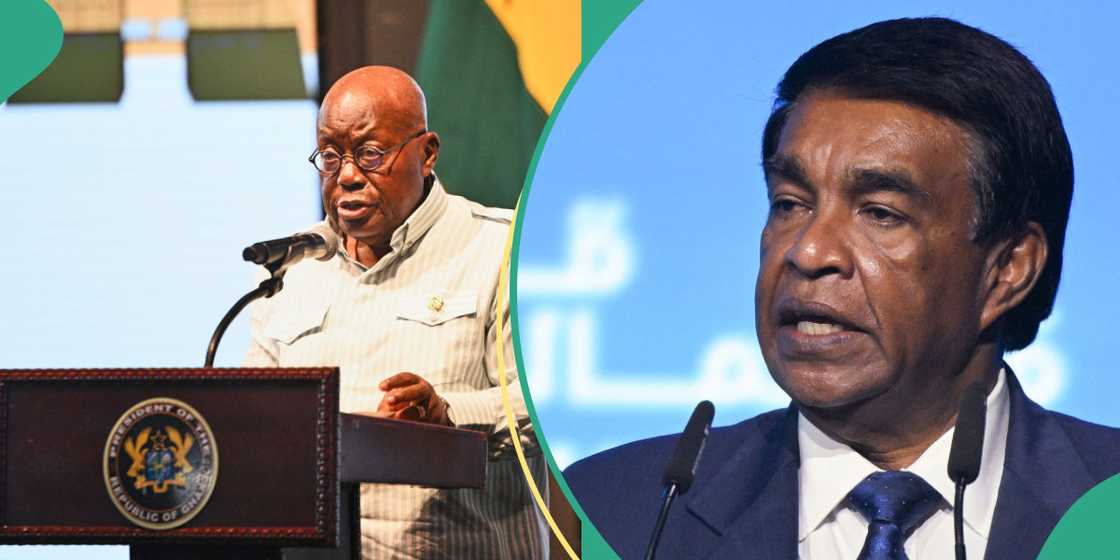FULL LIST: 10 Countries With the Best Infrastructure and Market Access in Africa
Some countries, according to StatiSense, have been ranked high based on the standard of their infrastructure and market access in Africa.
Don't miss out! Join Legit.ng's Sports News channel on WhatsApp now!
Legit.ng reports that for infrastructure and market access it means the physical, logistical, and regulatory systems that facilitate the movement of goods, services, and information within and outside of the continent.

Source: Getty Images
This also includes the foundational systems and networks that support business operations, economic growth, and trade.
While Nigeria is absent, here is a list of top 10 countries that have made strides in creating favourable environments for business and growth:
1. Mauritius
Mauritius stands at the top of the list with its impressive infrastructure, including world-class ports and an efficient transport system.
The island nation’s strategic location in the Indian Ocean also positions it as a key player in regional trade and business activities.
2. Seychelles
Known for its robust port facilities and strong air connectivity, Seychelles offers excellent access to international markets, particularly in the tourism and fishing sectors.
Its stable economy and focus on sustainable development make it a favourable environment for investment.
3. South Africa
As one of the continent’s largest and most industrialized economies, South Africa boasts a highly developed infrastructure network, including well-established road networks, ports, and airports.
Its strong financial markets and diverse economy make it a key player in African trade.
4. Botswana
Botswana’s infrastructure has been steadily improving, particularly in the sectors of transport and energy.
Its sound governance and strategic location within Southern Africa give businesses access to regional markets and make it a preferred hub for investment.
5. Namibia
Namibia has made significant improvements in its transport and logistics sectors, with a focus on connecting landlocked countries to international markets via the Port of Walvis Bay.
Its well-maintained roads and strong communication infrastructure support business activities.
6. Kenya
Kenya is a regional leader in East Africa, known for its rapidly expanding infrastructure.
The country boasts a modern road network, growing urban centers, and an expanding tech hub in Nairobi, making it a gateway for trade and investment in the region.
7. Djibouti
Strategically located on the Red Sea, Djibouti has invested heavily in port infrastructure, positioning itself as a key logistics and trade hub for East Africa. The country’s advanced ports are vital for international shipping routes and access to landlocked nations like Ethiopia.
8. Ghana
Ghana's infrastructure is expanding rapidly, with improvements in its road, port, and energy sectors.
The country has made strides in making market access easier, which, combined with a stable business environment, makes it a prime location for both regional and international business.
9. Rwanda
Rwanda’s infrastructure has undergone rapid development, particularly in transport and communication.
The country is well-connected by road and air and has become known as a regional tech and business hub, attracting investments with its ease of doing business.

Read also
Group sends major message to Tinubu, Keyamo as Nigeria's aviation sector int'l rating improves
10. Senegal
Senegal stands out with its well-maintained infrastructure, particularly in transportation, energy, and communication.
Its efforts in regional integration and investment in infrastructure have helped position it as a leading market in West Africa, offering businesses access to key regional markets.
36 states reject Tinubu’s tax reform bill
Earlier, Legit.ng reported that 36 state governors of Nigeria under the aegis of the Nigeria Governors’ Forum (NGF), have called for the immediate withdrawal of the National Tax Reforms Bill.
This demand threatens the comprehensive efforts undertaken by the Taiwo Oyedele-led Presidential Fiscal Policy and Tax Reforms committee.
The governors, speaking during Thursday's meeting of the National Economic Council (NEC), asked President Bola Ahmed Tinubu to withdraw the Reforms Bill from the National Assembly for more comprehensive consultations.
Source: Legit.ng




